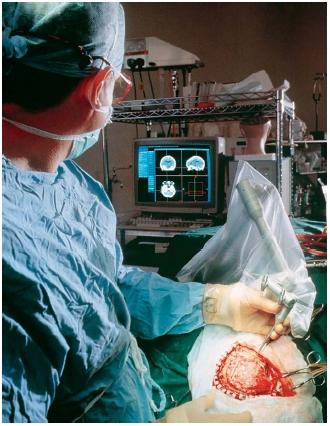A Summerlin-area surgeon is making sure his patients not only know, but see, the negative consequences of smoking on certain cosmetic procedures.
For a face lift, a tummy-tuck or a breast lift, Dr. Samir Pancholi, a board-certified cosmetic surgeon who practices at 8068 W. Sahara Ave., requires that his patients stop smoking four weeks before the procedure and refrain from smoking for four weeks after the surgery.
For a face lift, a tummy-tuck or a breast lift, Dr. Samir Pancholi, a board-certified cosmetic surgeon who practices at 8068 W. Sahara Ave., requires that his patients stop smoking four weeks before the procedure and refrain from smoking for four weeks after the surgery.

If they are having a hard time grasping the concept of the dangers of smoking, he shows them graphic pictures of people who falsely said they quit smoking prior to their surgeries.
Patients see dead, black skin and fat around the operated area. They see raised, red scars and deep bruising. They see skin tissue that needs to be removed, sometimes requiring a skin graph to repair. In some cases they see photos of patients who had to be hospitalized and receive antibiotics.
"People are shocked," Pancholi said. "I really do gauge how receptive people are to me showing them the pictures. I show them the pictures if I feel they're not really getting it, or if they feel I'm blowing smoke at them about the seriousness of the situation."
Some 12 million cosmetic surgery procedures were performed at a cost of $12 billion in 2007, with the number of procedures up 7 percent from 2006, the American Society of Plastic Surgeons reported. The number of procedures had doubled since 2000, the society said.
Because of the growing number of procedures, more studies are being done and more is coming to light about the effects smoking can have on certain cosmetic surgeries.
Nicotine from cigarettes restricts blood flow and oxygen to the healing skin, potentially causing the tissue operated on to die.
For procedures like Botox or breast augmentation, Pancholi recommends that patients quit smoking, but doesn't require it because survival of the tissue is not as dependent on blood supply. In procedures like a tummy tuck, where skin at the bottom of the stomach depends on blood flow supply from around the rib cage, the bloody supply is coming from a long distance, requiring no restriction to blood flow, Pancholi said.
Pancholi is not the only surgeon requiring patients to kick the habit. Dr. William Zamboni, professor of plastic surgery the University of Nevada School of Medicine and spokesman for the American Society of Plastic Surgeons, mandates that his patients completely abstain for three weeks before and three weeks after for a face lift, breast reduction or a tummy tuck.
"More than ever are plastic surgeons aware of the dangers of smoking on certain plastic surgeries," Zamboni said. "I don't know exactly the percentage of how many doctors require abstinence of smoking for a time, but I hope that 100 percent of board-certified plastic surgeons make it mandatory. If the patients having those procedures don't quit smoking before and after, they're just asking for trouble."
Even one cigarette puff or walk through a smoky casino could damage the tissue, Zamboni said.
"And if they have family members who smoke, they must go outside," he said.
To be sure his patients have quit, Pancholi requires that a week before the surgery, every patient take a urine test to check nicotine levels.
"You do see people who just can't quit," Pancholi said. "I don't feel comfortable doing the surgery. There are other alternatives that are less risky. They may not provide ideal results, but when it comes to health versus cosmetic, I choose health."
If patients are serious about quitting, but can't seem to do it, even with graphic pictures, Pancholi prescribes medicine like Chantix to help patients quit. Nicotine gum, however, cannot be used because it has nicotine.
The good news about requiring people quit for a period of time is that some who have been trying to quit for years find a motive to help them quit permanently.
"If they can quit smoking for six weeks, they're pretty well off to quit," Zamboni said.
About one in five of Zamboni's patients who are required to quit smoking will quit for good, he said.
"In life, they've never abstained for six weeks, so once they've done that, they realize they can quit," he said.
In general, Las Vegas is a very popular city for cosmetic surgery because of the entertainment industry. Both Zamboni and Pancholi said the most popular cosmetic surgery is breast augmentation.
Television shows focusing on cosmetic surgery and lower costs are a couple reasons cosmetic surgery is growing, but TV doesn't always depict the risks of the procedures, Pancholi said.
"The perils of cosmetic surgery are not presented on television," he said. "Hopefully I can reiterate some of the risks to patients in my office so they understand before surgery and after."
